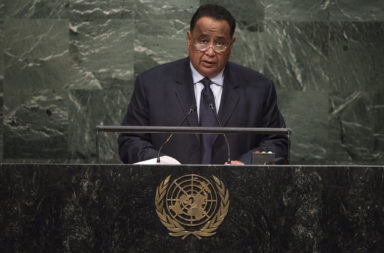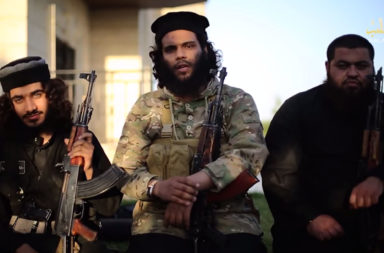In the Boston Globe, Professor Joshua S. Goldstein of University of Massachusetts Amherst shared some interesting research with the world about conflict, specifically armed conflict between states–the traditional definition of war.
The globe may not seem peaceful, but there is room for optimism. The amount of people dying in war is decreasing.
- From 1945 to 2011, war has been declining. In that time, the death rate fell from 22 per 100,000 to 0.3.
- But, by 2014, the number jumped up to 1.4 per 100,000.
- Will the longer term trend toward peace stand, or are we heading toward more war between states?
Why did the number of war deaths rise recently?
- The biggest war in the world, the war in Syria, has been a major source of death and displacement, with ISIS continuing to grow their territory into Iraq as foreign countries and proxies get involved without a clear strategy.
- More conflicts are happening elsewhere, particularly South Sudan, Nigeria (Boko Haram), the Central African Republic, Crimea (Russia), Yemen, and Libya.
Why is there an overall long term decrease in war deaths?
It is true that wars are still ongoing throughout the world (and terror attacks), but because of ceasefires, global violence is in decline.
- In the first quarter of this year, global war violence dropped dramatically due to ceasefires in Syria.
- Bloodshed has also been lessened recently in Crimea, the Central African Republic, Nigeria, and Pakistan despite ongoing conflict.
As these ongoing conflicts wind down, new ones haven’t taken their place.
- There is an overall trend of fewer wars between states. State armed forces account for 20 million soldiers worldwide.
- Now when countries have conflicts they are usually very small scale, like Armenia and Azerbaijan recently, and Turkey shooting down a Russian plane. Dozens die rather than thousands, like what happened in Iran, Iraq, India and Pakistan.
War is also now gone from the western hemisphere.
- Since FARC and Colombia signed an accord this year, the western hemisphere’s last political armed conflict is over, and the northern and southern American continents now join western Europe and eastern Asia as regions of peace.
Are we heading toward a world without violent war?
Terrorism, gang violence, and murders continue. But, war is in decline thanks to ceasefires and a trend toward long term peace. The ceasefires may be uncertain, and some may not hold, but the low death tolls prove that the bloodshed of traditional war can become a thing of the past if the international community commits to peace.




